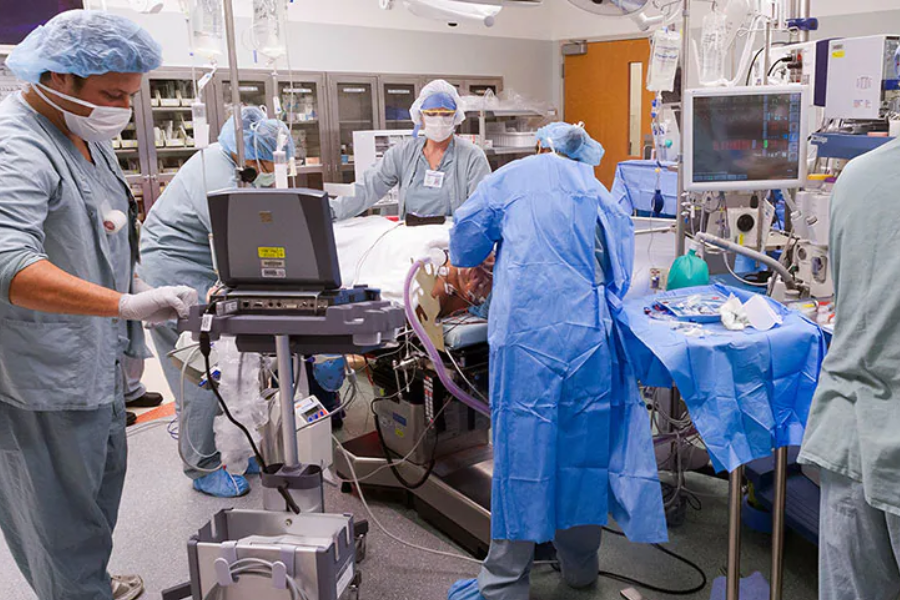Surgical tech jobstechnologists, often known as surgical tech jobstechs or operating room technicians, play an indispensable role in the medical field. These highly trained professionals work alongside surgeons, nurses, and other healthcare staff to ensure that surgeries go smoothly and efficiently. Their responsibilities range from preparing surgical tech jobsinstruments to assisting with the setup of the operating room, all while maintaining strict adherence to safety protocols.
What is a surgical tech jobsTechnologist?
A surgical tech jobstechnologist, also known as a surgical tech jobstech, is a highly skilled healthcare professional who plays a crucial role in the operating room. surgical tech jobstechs work alongside surgeons, nurses, and other medical professionals to ensure that surgeries are performed smoothly, safely, and efficiently. Their responsibilities span the entire surgical tech jobsprocess, from the preparation phase to post-operative cleanup. Below, we dive deeper into their role, key duties, and how they contribute to successful surgeries.
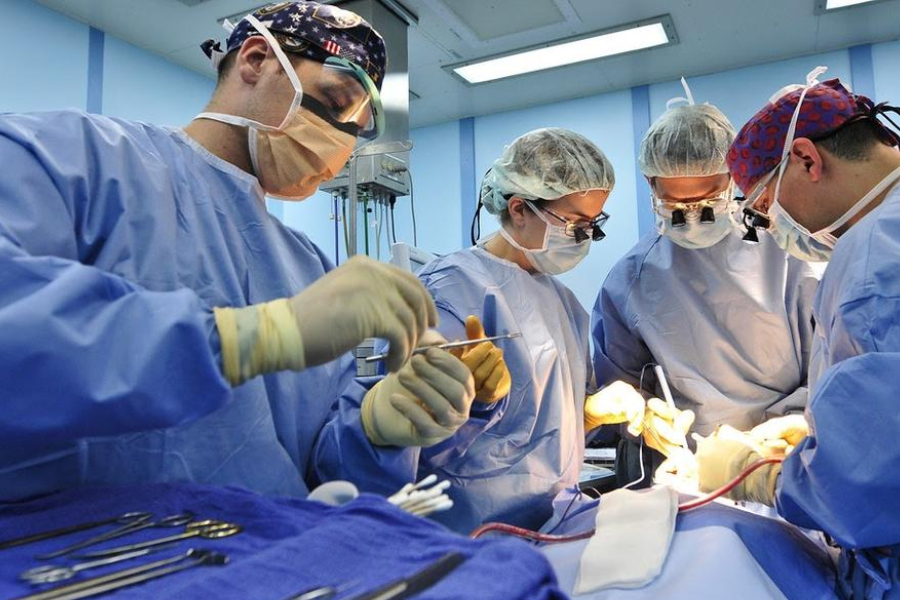
Pre-Surgery Responsibilities: Setting the Stage for Success
The role of a surgical tech jobstechnologist begins well before the patient enters the operating room. One of their primary duties is to prepare the surgical tech jobsenvironment for the procedure. This involves ensuring that everything is sterile and ready for use to minimize the risk of infection. The key tasks during this preparation phase include:
- Sterilizing surgical tech jobsInstruments: surgical tech jobstechs are responsible for ensuring that all surgical tech jobsinstruments are properly sterilized, reducing the chance of introducing harmful bacteria or other pathogens during the procedure.
- Setting Up surgical tech jobsEquipment: They prepare the operating table, arrange instruments, and set up any specialized equipment that will be used during the surgery. This includes ensuring that monitors and other devices are functioning properly.
- Checking Supplies and Materials: Before the surgery begins, surgical tech jobstechnologists check that all necessary medical supplies, such as sterile drapes, bandages, and medications, are readily available and within easy reach. They ensure the room is fully stocked with the required materials for the procedure.
In-Surgery Duties: Assisting the surgical tech jobsTeam
Once the surgery begins, surgical tech jobstechnologists work in close coordination with the surgical tech jobsteam to provide direct support. Their role during the surgery is critical for ensuring the procedure runs smoothly. Some of their primary in-surgery responsibilities include:
- Passing Instruments to the Surgeon: surgical tech jobstechs are responsible for handing the surgeon the correct instruments at the right moment. This requires a strong knowledge of the tools and their uses during different stages of the surgery.
- Holding Tissues and Assisting with Procedures: During certain parts of the surgery, the surgical tech jobstech may be called upon to hold back tissues or assist with other delicate tasks to provide the surgeon with better access to the surgical tech jobssite.
- Maintaining Sterile Field: One of the key responsibilities during surgery is maintaining a sterile field. The surgical tech jobstechnologist ensures that all instruments remain sterile and that no contamination occurs in the operating area. This includes monitoring the sterility of both equipment and the operating team.
- Managing surgical tech jobsSponges and Instruments: surgical tech jobstechs must keep track of all instruments and materials used during the surgery to ensure nothing is left inside the patient. They help count instruments, gauze, and other supplies before and after the procedure to avoid complications.
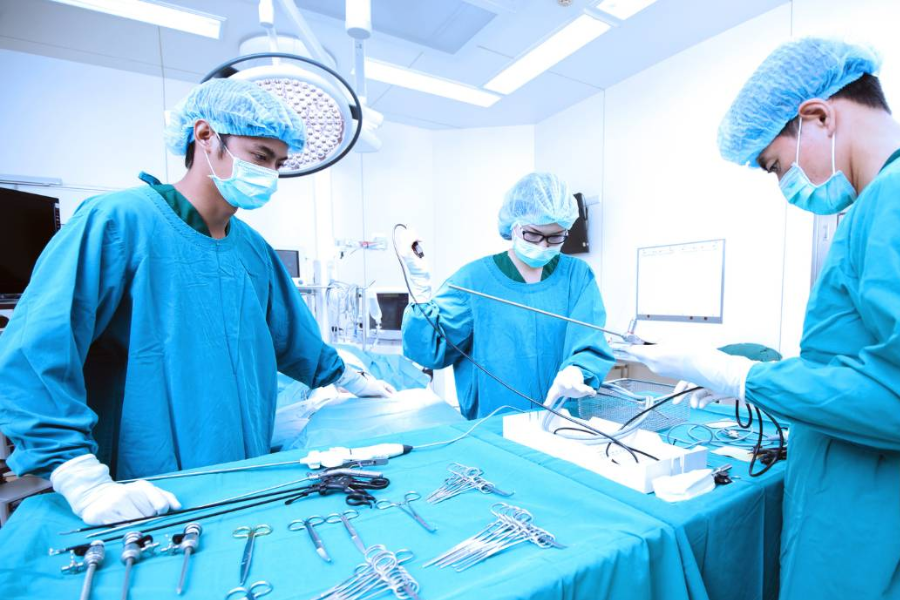
Post-Surgery Responsibilities: Clean-Up and Preparation for Next Procedure
Once the surgery is complete, surgical tech jobstechnologists have several important post-operative duties. These tasks are essential for both the patient’s recovery and preparing the operating room for the next surgery. Their post-surgery duties include:
- Cleaning the Operating Room: surgical tech jobstechs are responsible for cleaning and disinfecting the operating room after a procedure. This includes wiping down surfaces, cleaning tools, and ensuring that any waste is properly disposed of.
- Disposing of Medical Waste: They safely dispose of any materials that were used during surgery, such as contaminated gloves, sponges, and other disposables, following strict medical waste protocols.
- Preparing for the Next Surgery: In hospitals or surgical tech jobscenters with a high volume of surgeries, the tech’s job doesn’t end with one procedure. After cleaning, they prepare the operating room for the next surgery by sterilizing instruments, arranging equipment, and ensuring the room is properly set up for the next procedure.
Key Responsibilities of a surgical tech jobsTech
- Preparation and Sterilization: One of the most critical tasks for surgical tech jobstechs is ensuring that all instruments and equipment are properly sterilized and prepared. This reduces the risk of infections and ensures a safe environment for both patients and healthcare professionals.
- Assisting During Surgery: surgical tech jobstechnologists work closely with the surgeon, passing instruments and supplies as needed, as well as adjusting surgical tech jobsdrapes. Their role demands focus and precision to ensure the procedure proceeds without complications.
- Maintaining a Safe Environment: surgical tech jobstechs are responsible for maintaining sterile conditions throughout the surgery, monitoring the patient’s vitals, and handling instruments with care.
- Post-Surgery Clean-Up: After a surgery is complete, the surgical tech jobstech helps with the disinfection of equipment, the disposal of medical waste, and the preparation of the room for the next operation.
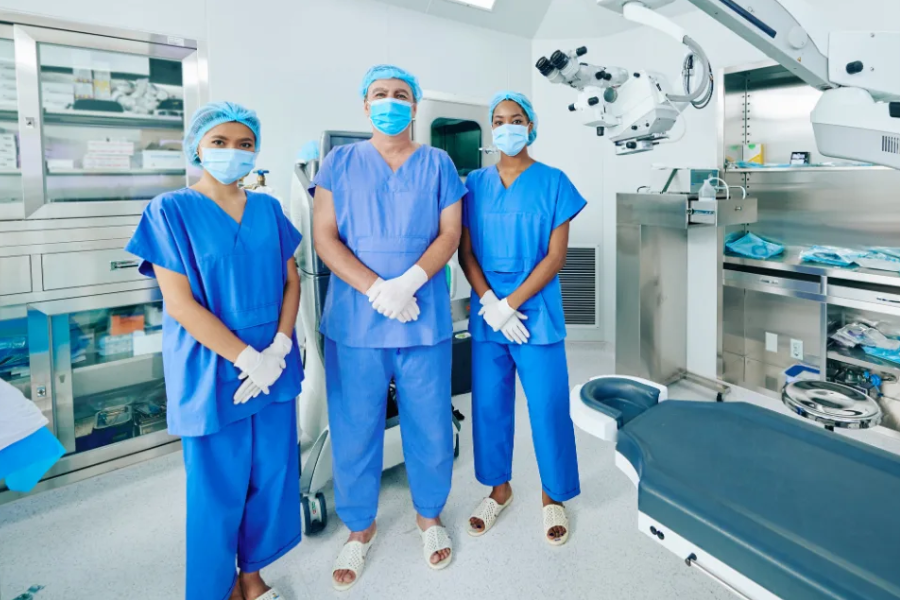
Educational Pathways to Become a surgical tech jobsTech
Becoming a surgical tech jobstechnologist involves a combination of formal education, hands-on training, and certification. While the path can vary depending on the educational institution and individual goals, there are general steps and requirements that all aspiring surgical tech jobstechs must follow. Here’s a closer look at the educational journey and options available.
1. Completing a Formal Education Program
The first step to becoming a surgical tech jobstechnologist is to complete a formal education program that is accredited by a recognized organization. These programs are designed to equip students with the necessary skills and knowledge to work in a surgical tech jobsenvironment.
Where to Study: Accredited Schools and Institutions
surgical tech jobstech programs are offered at a variety of educational institutions, including:
- Community Colleges: Many community colleges offer associate degree programs in surgical tech jobstechnology. These programs typically take around two years to complete and include a combination of classroom instruction and hands-on clinical experience.
- Technical and Vocational Schools: Specialized schools that focus on healthcare careers often offer diploma or certificate programs in surgical tech jobstechnology. These programs may take anywhere from 9 to 18 months to complete, depending on the structure.
- Universities and Hospitals: Some universities and teaching hospitals offer degree programs or additional training opportunities for students pursuing careers in surgical tech jobstechnology. These institutions may provide more in-depth coursework and additional resources for students.
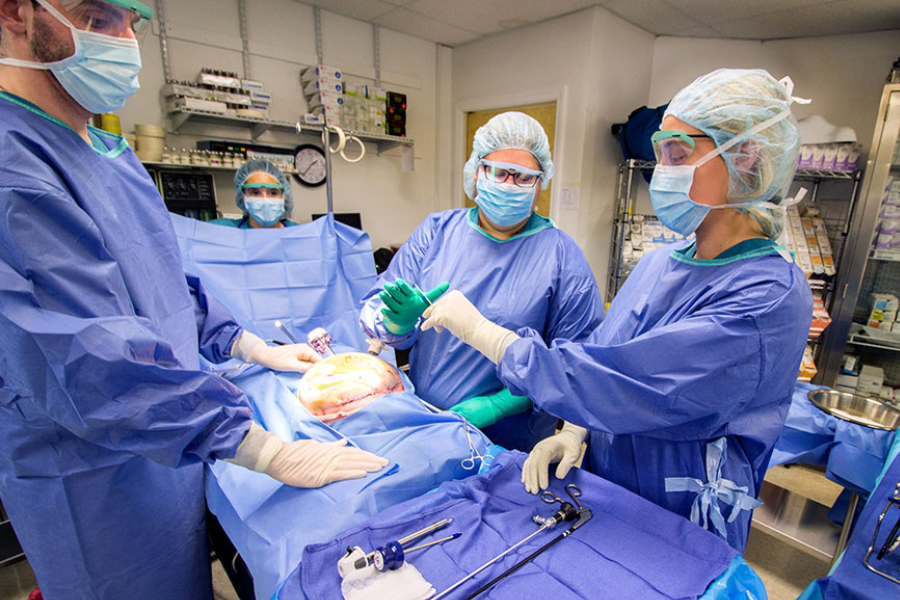
Core Subjects Covered in surgical tech jobsTech Programs
The curriculum in a surgical tech jobstechnology program is comprehensive, covering both theoretical knowledge and practical skills. Typical coursework includes:
- Anatomy and Physiology: Understanding the human body’s systems is crucial for assisting in surgeries.
- surgical tech jobsProcedures and Techniques: Students learn the basics of various surgical tech jobsprocedures, instruments, and techniques used in the operating room.
- Sterilization and Infection Control: surgical tech jobstechs must be knowledgeable in the processes for sterilizing instruments and maintaining a sterile environment in the operating room to prevent infections.
- surgical tech jobsInstruments and Equipment: Students are trained in identifying and handling various surgical tech jobstools and equipment.
- Patient Care and Safety: Emphasis is placed on understanding patient needs, monitoring vital signs, and maintaining a safe environment for both patients and the surgical tech jobsteam.
- Clinical Practice: Hands-on experience in real-world surgical tech jobssettings, often through internships or clinical rotations, is a vital component of training. This provides students with the opportunity to apply what they’ve learned in a real-world operating room.
2. Certification: Demonstrating Competency in the Field
While certification is not always mandatory, obtaining professional certification is highly recommended for surgical tech jobstechnologists. Many employers prefer or require candidates to hold a certification as it demonstrates a level of competence and professionalism in the field.
Certified surgical tech jobsTechnologist (CST) Exam
The most common certification for surgical tech jobstechnologists is the Certified surgical tech jobsTechnologist (CST) exam, which is offered by the National Board of surgical tech jobsTechnology and surgical tech jobsAssisting (NBSTSA). To sit for this exam, candidates typically need to meet the following requirements:
- Completion of an Accredited Program: Candidates must graduate from a surgical tech jobstechnology program that is accredited by the Commission on Accreditation of Allied Health Education Programs (CAAHEP) or a similar accrediting body.
- Application and Examination: After graduation, candidates can apply to take the CST exam. The exam itself consists of multiple-choice questions that test knowledge in key areas of surgical tech jobstechnology, including patient care, sterilization techniques, and surgical tech jobsprocedures.
- Recertification: Certification must be renewed every four years. surgical tech jobstechnologists can recertify by earning continuing education credits or by re-taking the certification exam.
Other Certifications
In addition to the CST, there are other certifications that surgical tech jobstechnologists can pursue to specialize in certain areas of surgery or further enhance their careers, such as:
- Certified First Assistant (CFA): For surgical tech jobstechs who wish to take on more advanced duties during surgeries.
- surgical tech jobsTechnologist in Endoscopy (CST-ES): For those focusing on endoscopic surgeries.
- surgical tech jobsTechnologist in Cardiovascular Surgery (CST-CVS): For techs working specifically with cardiovascular procedures.
3. Gaining Experience and Continuing Education
Once certified, new surgical tech jobstechnologists typically start their careers working in hospitals, outpatient surgery centers, or other healthcare settings. However, continuing education is essential for career advancement and maintaining certification.
On-the-Job Training
Even after completing an education program and obtaining certification, surgical tech jobstechs continue learning on the job. They gain valuable experience by working with various surgical tech jobsteams, adapting to different procedures, and improving their skills in real-time environments. This hands-on experience is invaluable in building a well-rounded career.
Ongoing Professional Development
As medical technology and procedures evolve, surgical tech jobstechnologists must stay updated on the latest techniques, tools, and safety protocols. Continuing education courses, workshops, and conferences provide opportunities for surgical tech jobstechs to stay current in their field. Additionally, certifications may require ongoing learning to maintain validity.
Job Outlook for surgical tech jobsTechnologists
The demand for surgical tech jobstechnologists is expected to grow significantly in the coming years. As medical procedures become more advanced and the population ages, the need for skilled surgical tech jobstechs continues to rise. According to the Bureau of Labor Statistics, the employment of surgical tech jobstechnologists is projected to increase by 9% from 2020 to 2030, which is faster than the average for all occupations.
Skills Needed for Success in surgical tech jobsTech Jobs
- Attention to Detail: Given the critical nature of surgical tech jobsprocedures, surgical tech jobstechs must have a sharp eye for detail, ensuring that everything from instruments to sterile procedures is handled flawlessly.
- Strong Communication: surgical tech jobstechnologists must communicate effectively with surgeons, nurses, and other healthcare professionals, ensuring everyone is on the same page during the procedure.
- Physical Stamina: The job can be physically demanding, requiring long hours spent on your feet in the operating room. surgical tech jobstechs need stamina and the ability to focus for extended periods.
- Problem-Solving Abilities: Surgeons often encounter unexpected situations during surgery, and surgical tech jobstechs must be prepared to adapt quickly to any challenges that arise.
Facts About surgical tech jobsTechnologists
- Job Demand: The U.S. Bureau of Labor Statistics projects that the employment of surgical tech jobstechnologists will grow by 9% from 2020 to 2030, which is faster than the average for other occupations. This growth is driven by an aging population and advances in medical procedures.
- Salary Range: As of 2023, the median annual wage for surgical tech jobstechnologists in the United States is approximately $50,000. However, this can vary depending on location, experience, and the type of healthcare facility. Some surgical tech jobstechs can earn up to $75,000 or more in specialized roles or with additional certifications.
- Work Environment: surgical tech jobstechnologists typically work in hospitals, outpatient care centers, clinics, or specialized surgical tech jobscenters. They work closely with surgeons, nurses, anesthesiologists, and other medical professionals in high-pressure environments.
- Required Skills: Key skills for surgical tech jobstechnologists include attention to detail, manual dexterity, strong communication, and the ability to work well under pressure. They must also have a solid understanding of sterilization techniques and surgical tech jobsinstruments.
- Job Flexibility: Many surgical tech jobstechs have the option to work full-time, part-time, or on-call shifts. The flexible schedule is particularly common in hospitals, where surgeries can take place at all hours of the day and night.
Frequently Asked Questions (FAQs)
Q: What does a surgical tech jobstechnologist do?
A; A surgical tech jobstechnologist prepares the operating room for surgery, sterilizes instruments, assists the surgeon by handing tools during the procedure, and ensures that the surgical tech jobsenvironment remains sterile throughout the operation. Afterward, they clean up the room and dispose of waste materials.
Q: How long does it take to become a surgical tech jobstechnologist?
A; It typically takes 9 months to 2 years to become a surgical tech jobstechnologist, depending on whether you pursue a diploma, certificate, or associate degree program. These programs combine classroom instruction and hands-on clinical training.
Q: Is certification necessary to work as a surgical tech jobstechnologist?
A: While certification is not always required, it is highly recommended. The most widely recognized certification is the Certified surgical tech jobsTechnologist (CST) exam, which is administered by the National Board of surgical tech jobsTechnology and surgical tech jobsAssisting (NBSTSA). Many employers prefer certified candidates, and certification often leads to better job prospects and higher salaries.
Q: What are the job prospects for surgical tech jobstechnologists?
A: The job prospects for surgical tech jobstechnologists are very promising, with a growing demand for skilled professionals in the healthcare sector. Factors such as the increasing number of surgeries, an aging population, and technological advancements in healthcare contribute to this growth.
Q: What is the average salary for a surgical tech jobstechnologist?
A: The average annual salary for a surgical tech jobstechnologist is around $50,000, though this can vary by location, experience, and workplace. In some regions or specialized areas, surgical tech jobstechs can earn more than $70,000 annually.
Q: Can surgical tech jobstechnologists specialize in certain areas?
A: Yes, surgical tech jobstechnologists can specialize in specific areas, such as cardiovascular surgery, orthopedic surgery, or neurosurgery. Some techs also choose to work in endoscopy or plastics surgery. Specialization often requires additional training and certification.
Conclusion
A career as a surgical tech jobstechnologist is both rewarding and essential in the healthcare industry. These professionals are integral to the success of surgical tech jobsprocedures and contribute significantly to patient care. If you’re interested in pursuing a career in this field, consider exploring accredited programs and certifications to start your journey toward becoming an expert in this vital role.
Stay Connected: Article Forward
